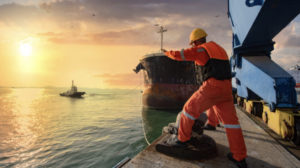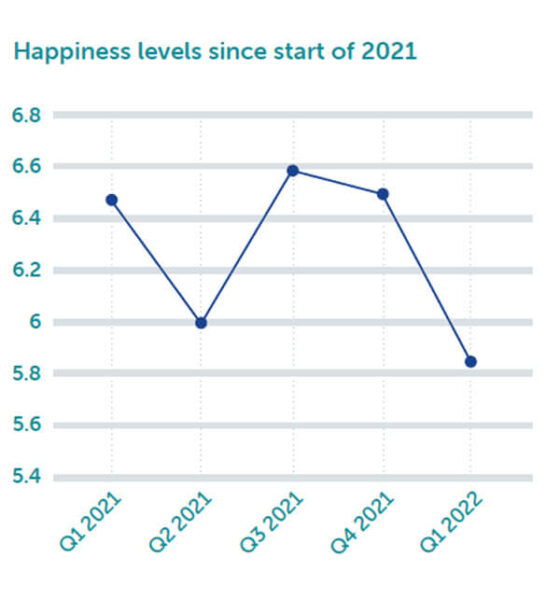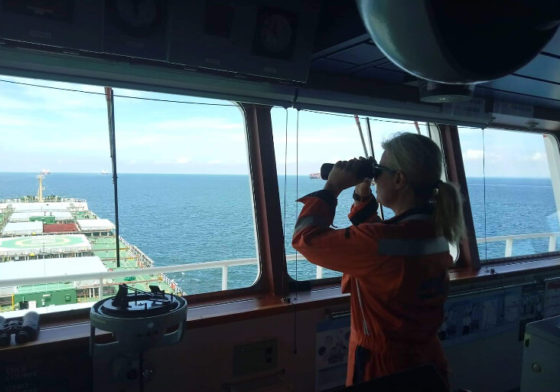
Seafarer happiness at eight-year low

A turbulent start to 2022 has contributed to the lowest levels of seafarer satisfaction for eight years, according to the latest Seafarers Happiness Index report, published by The Mission to Seafarers.
Reporting on Q1 2022, the Index’s measure of overall happiness decreased from 6.41 to 5.85, with happiness levels dropping across all categories. Factors including the Omicron variant, to the conflict between Russia and Ukraine and concerns over contractual issues, have severely impacted morale onboard.
“It’s hugely concerning to see seafarer satisfaction decline quite significantly in our latest Seafarers Happiness Index report, though unsurprising,” says Andrew Wright, secretary-general of The Mission to Seafarers. “With the continued threat and disruption of Covid-19 and the Russia-Ukraine conflict, seafarers face unprecedented challenges, which are exacerbated by restrictions on shore leave and crew changes.”
In the Q1 report, based on a quarterly survey of 10,000 seafarers working on vessels including bulk carriers, tankers, ferries and cruise ships, workers reported dissatisfaction with a ‘maze’ of regulations, ongoing port restrictions, and in many cases limited or no shore leave. Even when seafarers do get ashore, it is reported that many facilities are closed due to national restrictions, leaving them without support or basic services.
 Image courtesy of Seafarers Happiness Index
Image courtesy of Seafarers Happiness Index One anonymous seafarer, quoted in the report, said that life at sea is getting ‘increasingly depressing each day’, with ‘not much being done’ about the seafarers’ welfare.
‘Hectic work schedules, no social life … The workload is getting increasingly high with minimum crews on board, rest hours are only complied with on paper, yet none of the authorities pay heed. Shipping has become a floating jail, where you’re just expected to work endlessly like robots without questioning the work scenario. If money was not a concern, I don’t see a single seafarer willing to come back to sea,’ the source responded.
Seafarers were also impacted by Russia’s invasion of Ukraine. Many were concerned about their families and worried by tensions on board. On some ships, Russian and Ukrainian crew members are actively working together to try and ensure that relationships did not suffer, but as the war continues and misinformation spreads, tensions appear to be rising. Crew members from a host of nations including Ukraine, Poland, Romania and Bulgaria, expressed concerns about tensions on board.
In March 2022, Marine Industry News reported how members of the yacht community have joined forces to offer assistance and shelter to crew affected by the war in Ukraine. Yachties United connects offers of social support, shelter and donations with crew members in need.
The survey also highlights that seafarers continue to face problems surrounding their employment rights and contractual issues. The issue of contract extensions was frequently mentioned when asking seafarers about their general happiness at sea, and is impacting the mental health of crews that are effectively being forced to remain on board. Many say they are desperate to return home, especially as connectivity to speak to loved ones remains a huge challenge for seafarers.

The report does highlight examples of steps taken to improve welfare and morale onboard. There was positive feedback from seafarers who spoke about some of the efforts made to make life at sea more comfortable and enjoyable, despite other concerns. This included examples of vessels having funds allocated for wellbeing events and activities, such as weekly crew gatherings, quizzes, karaoke, sports, TikTok video making, movie nights, and barbecues.
“We hope that through the rest of 2022, organisations will take further meaningful steps to improve the welfare of crews and help boost seafarer happiness,” says Wright. “With financial backing and compassionate leadership, there are still actions that they can be taken to improve seafarers’ quality of life. It is important to listen to and learn from seafarers’ experiences, to not only empathise with them but work together to find practical solutions that will improve life at sea.”
